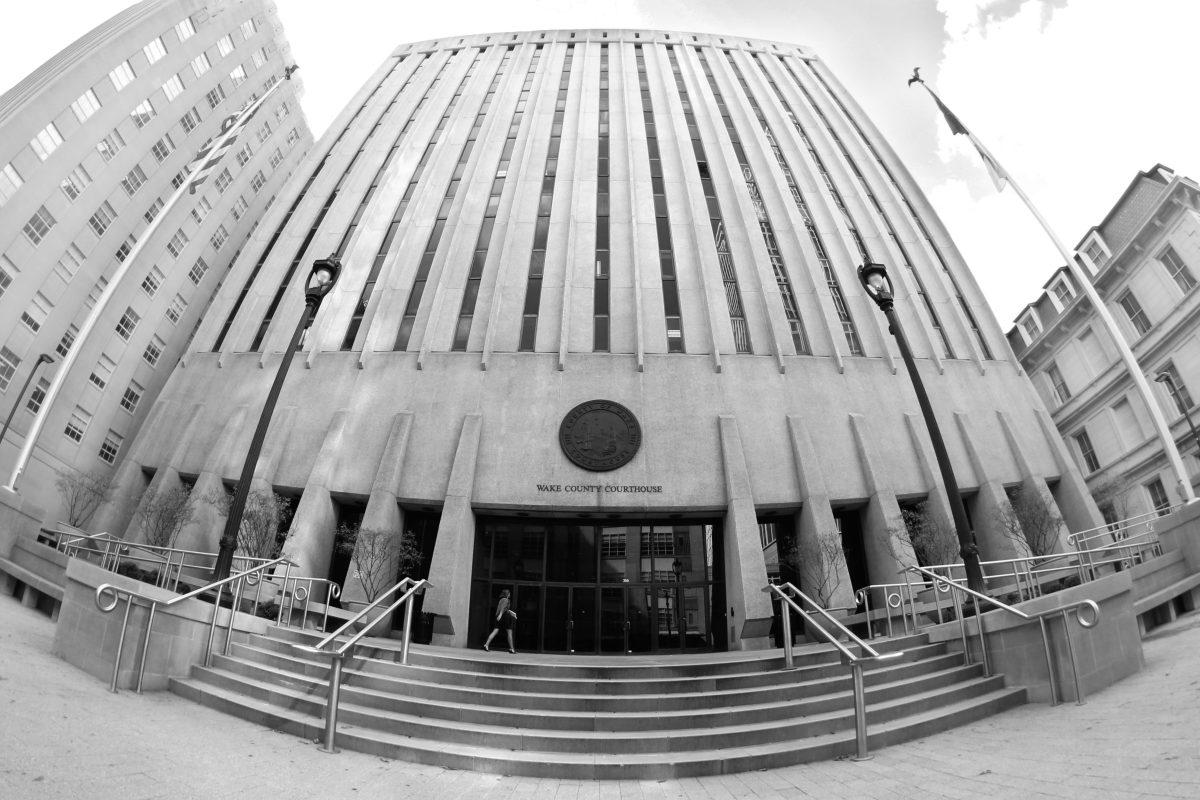The sale of the Hofmann forest has been a source of discussion, conflict and protest at N.C. State since the sale was announced last spring. Recently however, people who are unhappy about the sale found a new venue in which to make their discontent known—the courtroom
N.C. State’s Board of Trustees is in the process of selling the Hofmann Forest, which is the largest single piece of land owned by the University, and in an attempt to stop the board, several people, including N.C. State professors, recently filed a lawsuit.
Frederick W. Cubbage, professor of the Department of Forestry and Environmental Resources at N.C. State, is one of the plaintiffs in the lawsuit.
“The lawsuit itself basically states that the Hofmann Forest is state land that belongs to North Carolina State University, so therefore it should follow state rules and regulation,” Cubbage said.
The lawsuit was filed on the grounds that the University did not follow the State Environmental Protection Act.
“SEPA requires looking and analyzing alternatives and the second part of SEPA that we contested is that it requires public agency and citizen input in the decision on the alternatives,” Cubbage said.
According to Cubbage, there were at least four alternatives that weren’t properly analyzed: conservation easement that would block development, leasing the forest, selling a smaller part of the forest or keeping the forest.
“There are large amounts of biodiversity in the forest,” Cubbage said. “Water and wildlife would also be negatively affected if the forest is sold and developed. There will be huge adverse environmental impacts.”
Mary Watzin, dean of the College of Natural Resources, said in an earlier interview why the forest should be sold.
“As you know, it’s not just my decision,” Watzin said. “The Natural Resources Foundation Board of Directors made a unanimous decision to recommend the sale of the forest. The sale is for the benefit of the College of Natural Resources,”
According to Robert. D. Brown, former dean of the College of Natural Resources, The Hofmann Forest raised about $3.5 million per year for the College of Natural Resources, however it now provides $1.5 Million per year.
Brown said that the funds would be used for undergraduate scholarships, equipment, faculty salaries, matching funds for grants, support of student clubs and Study Abroad programs and research activities.
However, not everyone agrees with how the funds from the sale will be used.
“The sale proponents say that they want funds for students and faculty,” Cubbage said. “However, only a fraction of our current funds is given directly to our students in forms like scholarships.”
According to Brown, The Hofmann Forest is not a natural forest but instead a pine plantation on a 25-year rotation with about 1/25 of the forest is harvested each year.
The forest is composed of about 55,000 acres of planted trees and about 20,000 acres of pocosin swamp.
Brown said that the forest was not making as much money, falling by about 60 percent.
Currently, there are about 1,800 students in the College of Natural Resources. According to Watzin, not many of the students use the forest.
“Only a very small number of students go down to Hoffman Forest,” Watzin said. “We have about seven to nine out of 80 graduate students who have done something in the Hoffman forest. The vast of the college’s students and faculty are not using the forest.”
Both Watzin and Brown said the Hofmann Forest should be sold.
“I think it is time that the Hofmann Forest is sold,” Brown said. “It served its purpose many years ago as a teaching forest, and little research is done there now,”
The plaintiffs who filed the suit said that the sale of the Hofmann Forest violated Article 14 Section 5 of North Carolina Constitution. That section mandates protection of public land and water for the benefit of the public.
“There is some reasonable chance that it will be considered or the court would not have accepted the complaint,” Cubbage said. “The University is trying to say that the forest is not state land but university land and so SEPA does not apply, and we aren’t in the right county to bring the case. The University also believes that we don’t have enough standing to be involved in the decision.”








